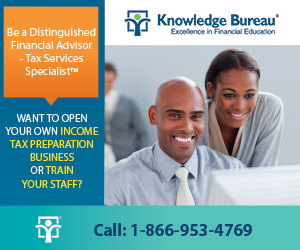
Take Up Rate for Canada’s Federal Benefits is Extremely Low
New data shows just how many Canadians lack access to federal benefits they’re eligible to receive. This was a topic of discussion with Pierre Labbee, an outreach manager for the Canada Education Savings Program at the recent Distinguished Advisor Conference. But now an annual benefit review of the Canada Child Benefit reveals that this benefit in particular is underused, despite it being accessible to millions, and one of the reasons is a difficult relationship with the CRA.
Annual benefit reviews conducted since 2015 reveal that the CRA has owed a reported $1.837 billion to taxpayers, while identifying $3.021 billion owed to the CRA by taxpayers. The money owing to Canadians by the CRA is in part due to people giving up benefits they’re eligible to receive for a surprising reason: an inability to comply with CRA demands for proof within 30-days that they qualify for these programs.
National Revenue Minister Diane Lebouthillier promises to address this issue, by hiring a Chief Service Officer, announced formally on October 30. This new officer at the CRA is tasked with launching consultations with Canadians to improve service at the CRA, including the lack of access to benefits that Canadians most in need of financial help depend on.
This is where skilled tax and financial advisors can help – ensuring that benefit claims are submitted accurately, and that requests for additional documentation are effectively complied. Most important: to represent the client to the CRA and communicate on a timely basis with the information CRA needs to release needed benefits to the client.
It is also possible to recoup benefits unclaimed in the past. Year-end is a good time to review prior filed returns or catch up on missed returns. This is especially critical in positioning low income families for another benefit that has a low take-up rate: the grants and bonds available under the Registered Education Savings Plan program.
Mr. Labbee who co-ordinates strategic partnerships in a unique outreach program that includes the private sector told the delegates at the Distinguished Advisor Conference that of the 7 million children in Canada, there are 50 percent with an RESP contribution; a good result, as higher education is the key to accessing better jobs and benefits – a decisive way to break the poverty cycle.
However, there are almost 2 million children who are eligible but not receiving the Canada Learning Bond or the Canada Education Savings Grant. The take up rate for the CLB is particularly low – about 36% - and tax and financial advisors can help directly by obtaining Social Insurance Numbers and filing tax returns.
With specialized training as a DFA – Tax Services Specialist, Canadians can help in the community by acquiring the broad and precise tax knowledge needed to make sure all families can take advantage of these important programs. This professional knowledge and process for complete and accurate tax filing will also position the student to work as a strong advocate when the CRA auditors come knocking.
The following courses are recommended to complete the DFA – Tax Services Specialist program, although with Knowledge Bureau designation programs, you can customize your online education to complement core course requirements and meet your specific needs.
- Income Tax Filing Fundamentals
- Personal Tax Filing and Planning
- Advanced Tax Filing and Planning
- Tax Accounting for Proprietorships
- Tax Accounting on Death of a Taxpayer
- Fundamentals of Filing Trust Returns
Register before December 15!
Additional educational resources: Register to attend the Winter CE Summits for an advanced personal tax update, with workshops happening in six Canadian cities this January. Early-bird registration ends January 10.
Sign up today for the 2019 Distinguished Advisor Conference in Puerto Vallarta, Mexico for a $300 hotel credit, too.
COPYRIGHT OWNED BY KNOWLEDGE BUREAU INC., 2018.
UNAUTHORIZED REPRODUCTION, IN WHOLE OR IN PART, IS PROHIBITED.





